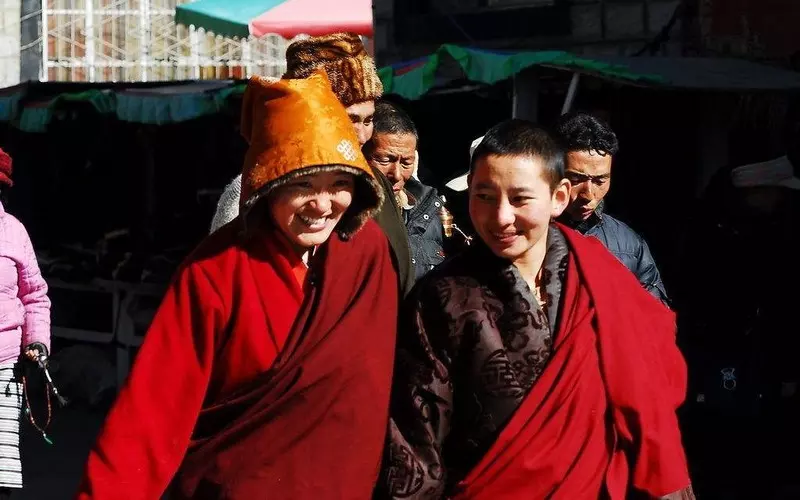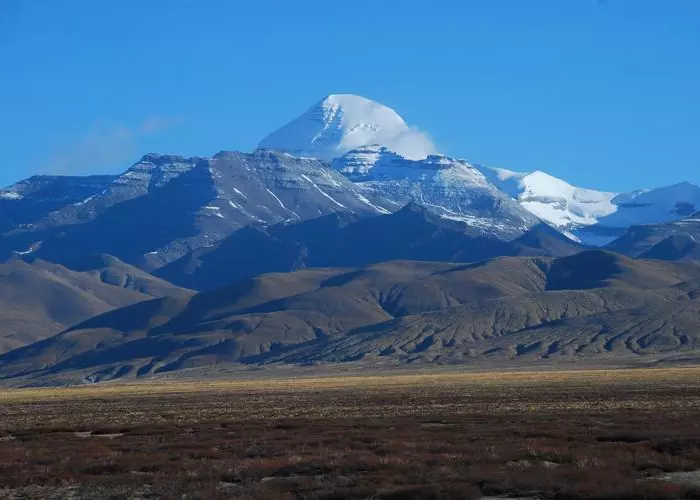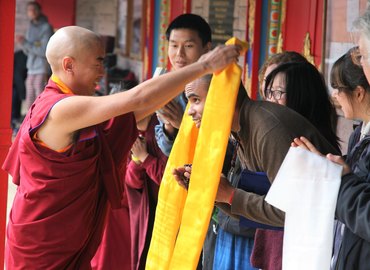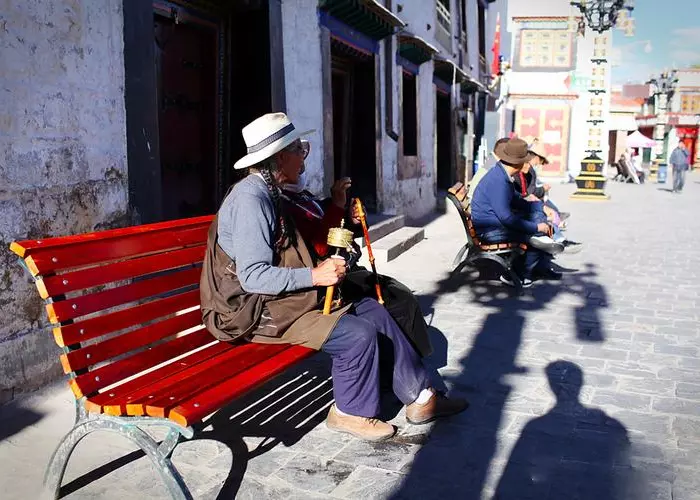Tashi Delek
- Freya
- Last Updated : 05/21/2025
When traveling to Tibetan areas, we will always hear Tashi Delek or take the initiative to say Tashi Delek to others. The simple Tibetan greeting can not only shorten the distance between each other but also eliminate the strangeness of the Tibetan area. So the question is coming, do you know the true meaning and origin of Tashi Delek? Do you know that others have greeted you Tashi Delek, how to reply politely?
Some have the understanding of Tashi Delek as auspicious, but it's more than that. Among Tashi Delek, "Ta" means good, bright, perfect, auspicious, etc .; "Shi" means good results, wonderful results, and harmony, as well as all kinds of good wishes and dreams; "De" means no disease, no disaster, no war, no disorder, serenity, positive energy, peace, happiness, joy, greatness, etc .; "lek" means no dirt, beautiful, great perfection, full of goodwill, the fulfillment of wishes, benefits and benefits.
Tashi Delek implies not just a kind of blessing of goodwill, but also a deeper meaning. That is, "there is a cause, there must be a result". But in any case, the answer is to say "Tashi Delek" (good luck and happiness), which is the best kindness and blessings to the other side.
Tashi Delek is a Tibetan saying of welcome and blessings. In Tibetan, if someone says "Tashi Delek", it can be translated as "welcome" or "good luck", and the answer should be "Tashi Delek, shu (fourth sound) "instead of" Tashi Delek".
The origin of the Tibetan auspicious words " Tashi Delek " comes from the oldest Buddhist scripture of Yongzhong Bon in Tibet long ago. 18,000 years ago, when Shenrab Miwo Buddha(born in the Zhuang Zhung Kingdom) came to Tibet Kongpu for lecturing, he already had used the words "Tashi Delek". The words "Muzhumantuo" in Xiangxiong equal to "Tashidelek" in Tibetan. Some people have fabricated the legend that Tashi Delek was brought to Tibet by Princess Wencheng. Although it was only for a smile and no other purpose, it also misled many people.

Of course, it is far from enough to say "Tashi Delek" in Tibet. You can also learn about these very practical Tibetan words as below:
- Thank you= thuk-je-che་(ཐུགས་རྗེ་ཆེ་།)་
- How are you? =kayrang kusu debo-yimbay? (ཁྱེད་རང་སྐུ་གཇུགས་བདེ་པོ་ཡིན་པས།)
- Sorry = gong-da (དགོང་དག་།)
- Can you reduce the price? = Gong Chak dang
- Where is the hospital? = Nem-Khang Garpa yo rephe
- Call an ambulance = Cheek- Nyee-Lekor La Kapar tang.
It should be noted here that Tibet is a very large region. Generally speaking, we will divide Tibet into three regions: U-tsang (basically the area of Lhasa, Xigaze and Shannan in Tibet), Amdo (Qinghai, Naqu and the grassland in the northwest of Sichuan) and Kham (western Sichuan, Qamdo and northwest Yunnan, etc.). And the pronunciation scheme we provide here is based on the Lhasa dialect.
Email response within 0.5~24 hours.







